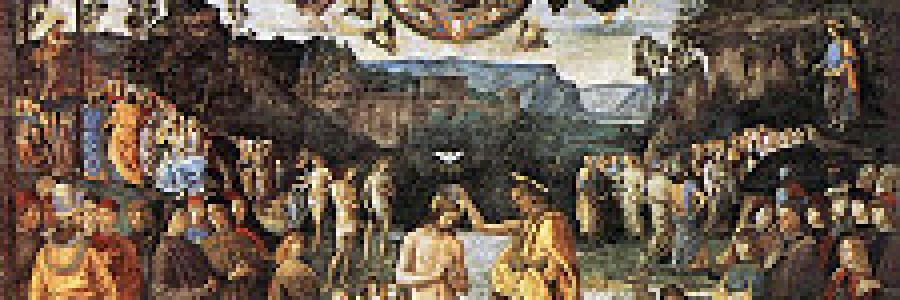Theology Thursday - Second Helvetic Confession on the Law
On “Theology Thursday,” we feature short excerpts on various areas of systematic theology, from a wide variety of colorful (and drab) characters and institutions. Some are orthodox, but decidedly outside the Baptist orbit. Others are completely heretical. Regardless of heresy or orthodoxy, we hope these short readings are a stimulus for personal reflection, a challenge to theological complacency, and an impetus for apologetic zeal “to encourage you to contend earnestly for the faith that was once for all entrusted to the saints,” (Jude 3).
Discussion
Jack Chick Passed
http://www.chick.com/m/information/Jack-Chick/ My generation of fundies will always remember the work of Jack Chick.
Discussion
LifeWay Stops Selling Jen Hatmaker Books over LGBT Beliefs
Body
“The Southern Baptist chain stated Thursday that the author’s statements ‘contradict LifeWay’s doctrinal guidelines,’ and it has discontinued selling her books in its 185 stores or online.”
Discussion
Theology Thursday - Dispensationalists on the Law & the Christian
On “Theology Thursday,” we feature short excerpts on various areas of systematic theology, from a wide variety of colorful (and drab) characters and institutions. Some are orthodox, but decidedly outside the Baptist orbit. Others are completely heretical. Regardless of heresy or orthodoxy, we hope these short readings are a stimulus for personal reflection, a challenge to theological complacency, and an impetus for apologetic zeal “to encourage you to contend earnestly for the faith that was once for all entrusted to the saints” (Jude 3).
Myron Houghton
“Those who believe that salvation is by grace alone through faith alone recognize that the role of the law is to show sinners that they are, in fact, sinful and that they need a Savior. Once the law has accomplished this purpose, it ceases to function as a part of salvation: ‘Christ is the end of the law for righteousness to everyone who believes’ (Rom 10:4).
This use of the law in showing the lost their need of a Savior becomes a hermeneutical principle. Any passage that makes demands by causing the reader to be afraid of God, whether in the Old or New Testament, is to be considered law. By the same token, any passage that offers God’s free forgiveness apart from demands, whether in the Old or New Testament, is to be considered gospel.”1





Discussion